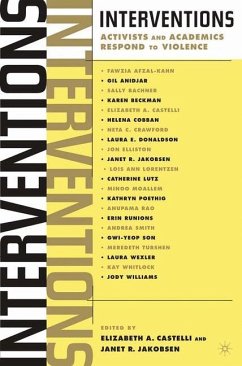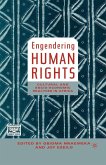This collection brings together top scholars to discuss the significance of violence from a global perspective and the intersections between the global structures of violence and more localized and intimate forms of violence. Activists and academics consider questions such as; are there situations in which violence should be politically supported? Are non-violent or anti-war movements in the US able to effectively respond to violence? Do we need to rethink our understanding of both 'religion' and 'secularism' in light of the current world situation? Have new paradigms been developed in response to violence? The essays in this collection offer inclusive analysis of particular situations and creative alternatives to the omnipresence of violence.
'There is a long tradition of intellectuals responding to violence, particularly if there is a provocation such as the US invasion in Iraq. Castelli and Jakobsen have edited a book with a wide range of articles, most of them written from a feminist point of view. All are in some way related to violence. Basically, they try to contribute to the development of new and more comprehensive vocabularies for analyzing violence and revitalized strategies for antiviolence activism...For the peace research community, this book brings together articles that try to focus on violence from a feminist or at least from a female point of view. This is the most relevant and fruitful aspect of the book.' - Journal of Peace Research








